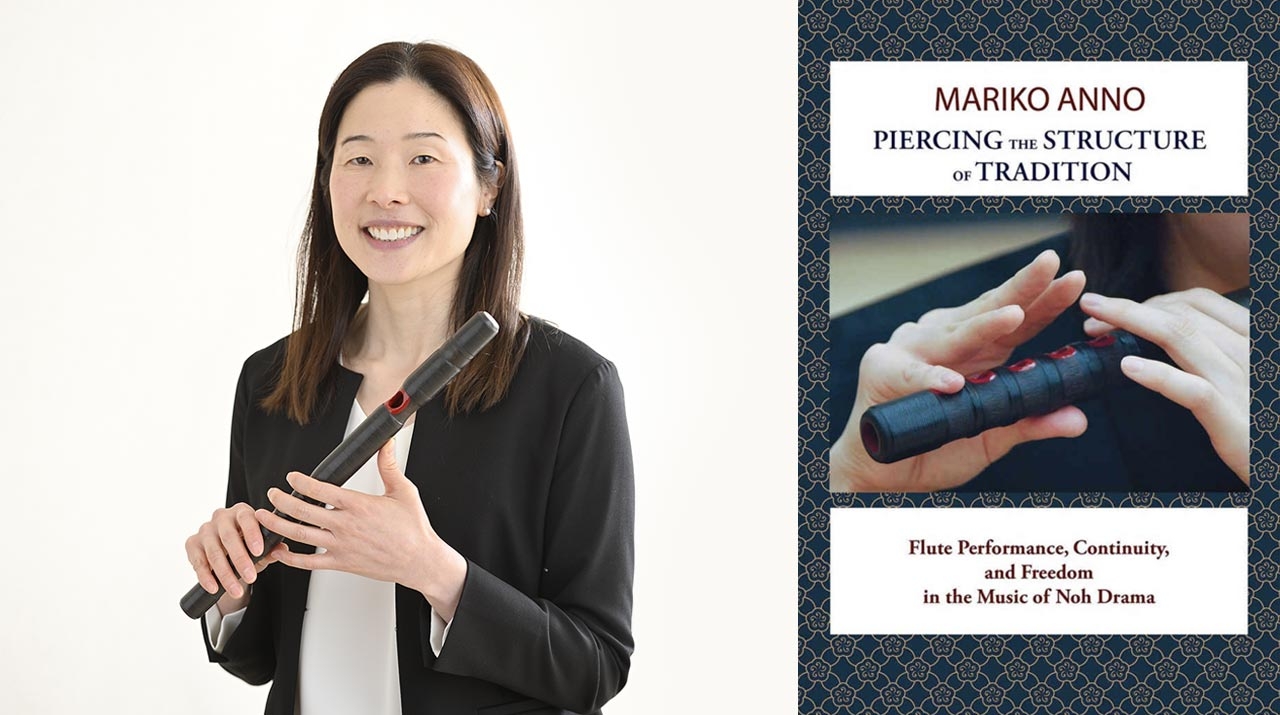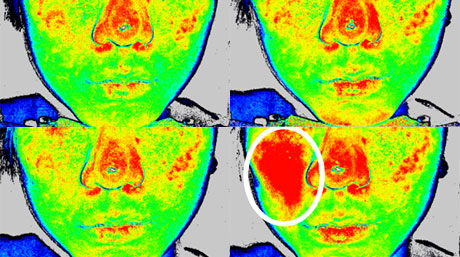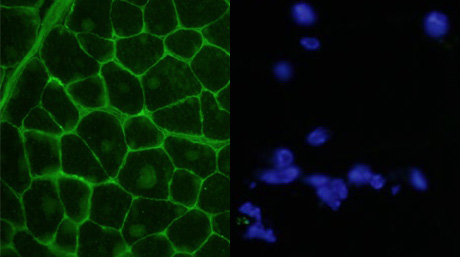Institute for Liberal Arts News
Something to chew on: how low-energy gum may help with your waistline
Tokyo Tech shows that energy output can be further controlled by gum-chewing after taking the time to properly consume a meal.
Although some people may find it unsightly, chewing gum may actually be good for you—not just for freshening your breath, but also for weight management—especially after a meal.
Studies have shown that chewing food slowly and properly helps to curb overeating. However, in today's busy society, many of us tend to eat quickly and carelessly. In slow-eating individuals, diet-induced thermogenesis (DIT)—the energy required to digest and metabolize the food we eat—was found to be greater than that of those who eat their meals quickly. A higher rate of DIT may be a protective factor in obesity.
Using that knowledge, researchers from Tokyo Tech set out to investigate how the negative effects of rapid eating could be reduced. The answer may lie in a humble piece of chewing gum.
DIT and eating speed
The team hypothesized that post-meal gum chewing would increase DIT by increasing abdominal activities, consequently substituting DIT increased with slow eating. To test their hypothesis, they recruited 12 healthy normal-weight males to participate in four eating trials on four different days. The participants were asked to consume a 621-kcal meal in two different ways; taking as long as they would like to eat their food, as quickly as possible. The same trials were repeated with the addition of a 15-minute gum-chewing session and the consumption of 3 kcal of sugar, which corresponds to the energy of the gum, respectively, after the meal.
As they had hypothesized, the researchers found that DIT was greater in the gum-chewing trials for both rapid-eating and slow-eating trials. Notably, the difference in DIT between rapid-eating and slow-eating trials was greater than that between non-gum-chewing and gum-chewing trials.
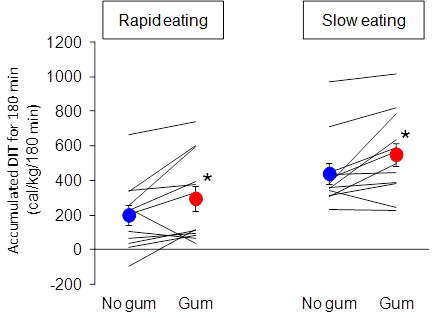
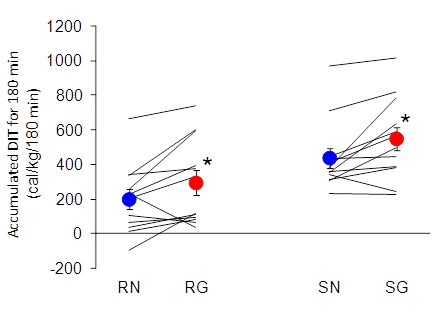
Chewing food slowly and thoroughly can help control energy intake. Chewing gum after eating and can enhance this effect.
Chewing gum to lose weight
Although the beneficial effect of post-meal gum chewing did not outweigh that of slow eating, this study shows that having a piece of gum after each meal is likely to help weight management. Eating slowly can be difficult for some people, since natural eating speed is acquired over a long period of time. Gum chewing, in contrast, requires very little effort. Therefore, it should be an easy positive habit for all of us to adopt.
Reference
Authors: |
Yuka Hamada, Akane Miyaji and Naoyuki Hayashi |
Title of original paper: |
Effect of postprandial gum chewing on diet-Induced thermogenesis |
Journal: |
Obesity |
DOI : |
- H Lab. in Tokyo Tech.
- Researcher Details | TOKYO TECH STAR Search - Naoyuki Hayashi
- Latest Research News
Further information
Professor Naoyuki Hayashi
Institute for Liberal Arts
Email naohayashi@hum.titech.ac.jp
Tel +81-3-5734-3434

